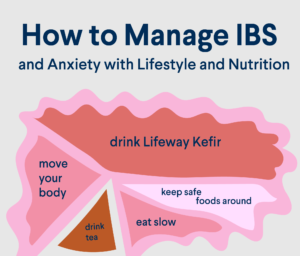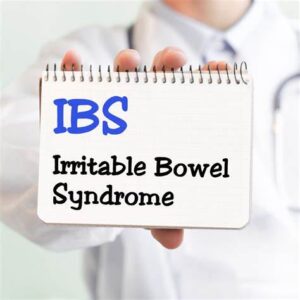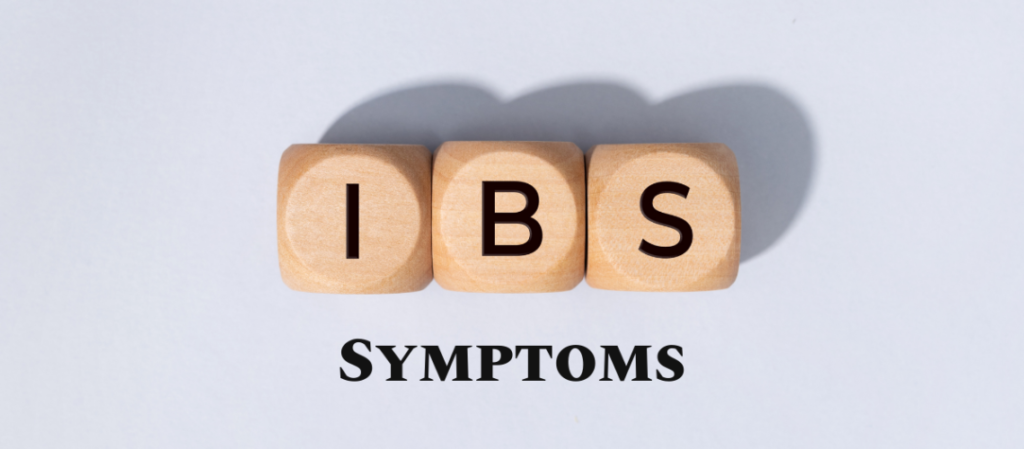Read time 5 minutes
This blog is another opportunity to feel grateful. Thank you, Universe, for continuing to bless me with recovery and health.
Irritable Bowel Syndrome (IBS) is a disorder that largely affects the large intestine. The key symptoms are bloating, diarrhea, abdominal pain, and constipation.

IBS can impact daily quality of life because of all the physical discomfort one goes through. It involves medications, dietary changes, and many lifestyle adjustments.
This blog post is about sharing personal experiences and insights on IBS…
Let’s find out if IBS was a symptom of my rare neurological problem, Isaacs’ Syndrome, or a stand-alone problem. I will also touch upon its symptoms, causes, and treatment options. This post can be helpful if you want to learn some practical tips to overcome and prevent the condition. Also, what possible steps can be taken if a rare neurological condition accompanies IBS?
In 2016, I was diagnosed with a rare disease called Isaacs’ Syndrome. Isaacs’ is a neuromuscular health condition that stems from muscle hyperactivity. In the process, I also discovered that I had Lyme disease. Lyme is a bacterial illness that gets transmitted through ticks.
Glaucoma also accompanied me. Glaucoma is an eye-related disease that damages the optic nerves. And Membranous Glomerulonephritis is a progressive kidney disease. I faced tremendous issues with my gut, stomach acid, and digestive enzymes. During my journey, I also developed Irritable Bowel Syndrome (IBS), Diabetes, Frozen Shoulder, Eczema and Blood Pressure.
My list of alien symptoms was visible and played havoc way before the actual diagnosis was made. It was related to neurology, gastroenterology, and ophthalmology. I often wondered and went through immense confusion and discomfort. The list included various deficiencies, diarrhea, indigestion, and inflammation. My journey became about understanding my limitations in almost every sphere of life.
Reaching diagnosis was quite challenging. It involved visiting many doctors, thorough examinations, and specialized tests.
After diagnosis, symptomatic treatments and medicines came in handy offering immediate relief.
The Common Link Between Isaacs’ Syndrome and IBS

Isaacs’ Syndrome is also called neuromyotonia and is a rare neurological disorder. It leads to symptoms like fasciculations, twitching, cramps, muscle stiffness, and weakness.
IBS is a common gastrointestinal disorder that largely affects the large intestine. The key symptoms are bloating, diarrhea, abdominal pain, and constipation.
Isaacs’ Syndrome and IBS are distinct conditions. Both affect different systems of the body. However, there is a potential connection through the autonomic nervous system. Isaacs’ Syndrome might influence gastrointestinal functions.
To summarize: The connection between the two distinct conditions needs to be well-established. In my case, there are strong possible linkages between the two.
The Sudden Onset of IBS
Many chronic diseases are invisible, meaning, their symptoms aren’t pronounced. My rare and chronic conditions led to many misunderstandings and confusion.
Initially, I didn’t admit that anything was wrong. I thought it was normal and exertion, and overwork was causing it all. My list of symptoms included bloating, diarrhea, cramps, ill-timed hunger, indigestion, and weakness. It was inconvenient, but I put my best foot forward as per my ability.
Within no time, I developed a unique relationship with bathrooms.
At first, the doctors thought I had acid reflux but after the ultrasound and endoscopy, they confirmed IBS.
It wasn’t only related to food. It was all so complicated as there much going on with other health conditions. The severity of the symptoms was complex and kept changing.
In a large family, I was an oddity. Just when I started to come to terms with IBS, I got worse news, I had a rare and a couple of chronic diseases.
The Havoc Wreaked by IBS

The symptoms are diverse and can vary from person to person. I experienced some common ones:
1) Gas & Bloating
Despite a change in my dietary plan, I felt full most of the time.
2) Abdominal cramping and pain
3) Diarrhea
these loose stools made my health condition even worse. Daily I went from weak to weaker and lost enough weight.
4) Fatigue
I have no words to express my weakness and fatigue.
5) Troubled sleeping
6) Intolerance to most of the food consumed
7) The weakness and fatigue caused lower back aches and body pain.
Managing IBS
In my experience, there is no foolproof cure for IBS.
I was prescribed a set protocol. Basic symptom management happened through medicines, treatments, and lifestyle and food changes.
Coping Strategies and Ayurvedic Treatments
Initially, I started with symptomatic treatment with allopathic medicines and therapies. They came across as the ultimate solution offering immediate relief. Over time, I realized I was only treating the symptoms with many side effects rather than addressing the root cause of my illnesses.
That’s when I took a holistic approach to healing and got introduced to Ayurveda.
This Eastern-based approach tailored my lifestyle and diet, specific to my body constitution. I felt my treatment focused on customized care rather than a one-size-fits-all approach.
Herbal remedies are the heart of Ayurveda. The treatment idea was focused on the root cause and not symptom suppression.
I remember it was a huge task to spread my meals throughout the day, eating in small portions. I was instructed to eat slowly and properly chew my food. My worst enemy is anything difficult to digest and aggravates Vata. I found some relief in the quiet chambers of this traditional art of healing.
With IBS, I experienced various sets of treatments and lifestyle changes that helped:

1) Managing Stress
First things first. It is crucial to incorporate stress-reducing intentions and activities. I started with yoga, pranayama, using epsom salt, etc. to manage this aspect.
2) Dietary Adjustments
It involved specific dietary changes to help symptoms. Foods that were hard to digest were completely out of my menu. I was asked to avoid spicy, fatty, fast foods, gluten, artificial sweeteners, and caffeine.
3) Having Probiotics helped my gut bacteria. It also helped my IBS symptoms, especially diarrhea.
4) Keeping weight under check was a must.
Conclusion
With many, IBS is triggered by toxins, inflammation, or infections which can cause a leaky gut.
I hope my IBS has ended with years of care.
During my journey, I coped with many chronic conditions including IBS that were tough. Living with them requires awareness, adaptability, mindfulness, resilience, and self-care strategies.
In my experience, there seems a complex relationship between IBS and food. I follow the principles of Ayurveda to live in tandem and maintain a healthy lifestyle. It includes healthy home-cooked eating, yoga, timely medicines, and pranayama.
After years of treatments and medicines, the intensity of my symptoms is less. I feel more confident about recovery than before. Though the field of medicine has made significant advancements, I am still waiting for the final closure.
Dear readers, please customize your healing path. It’s important to remember that there isn’t a one-size-that-fits-all.
My Top Tip

Probiotics, an IBS-friendly diet, timely medicines, and listening to my hunger pattern, worked amazingly for me.
DISCLAIMER
The views expressed above in this article are the author’s own and do not represent any kind of medical advice.


